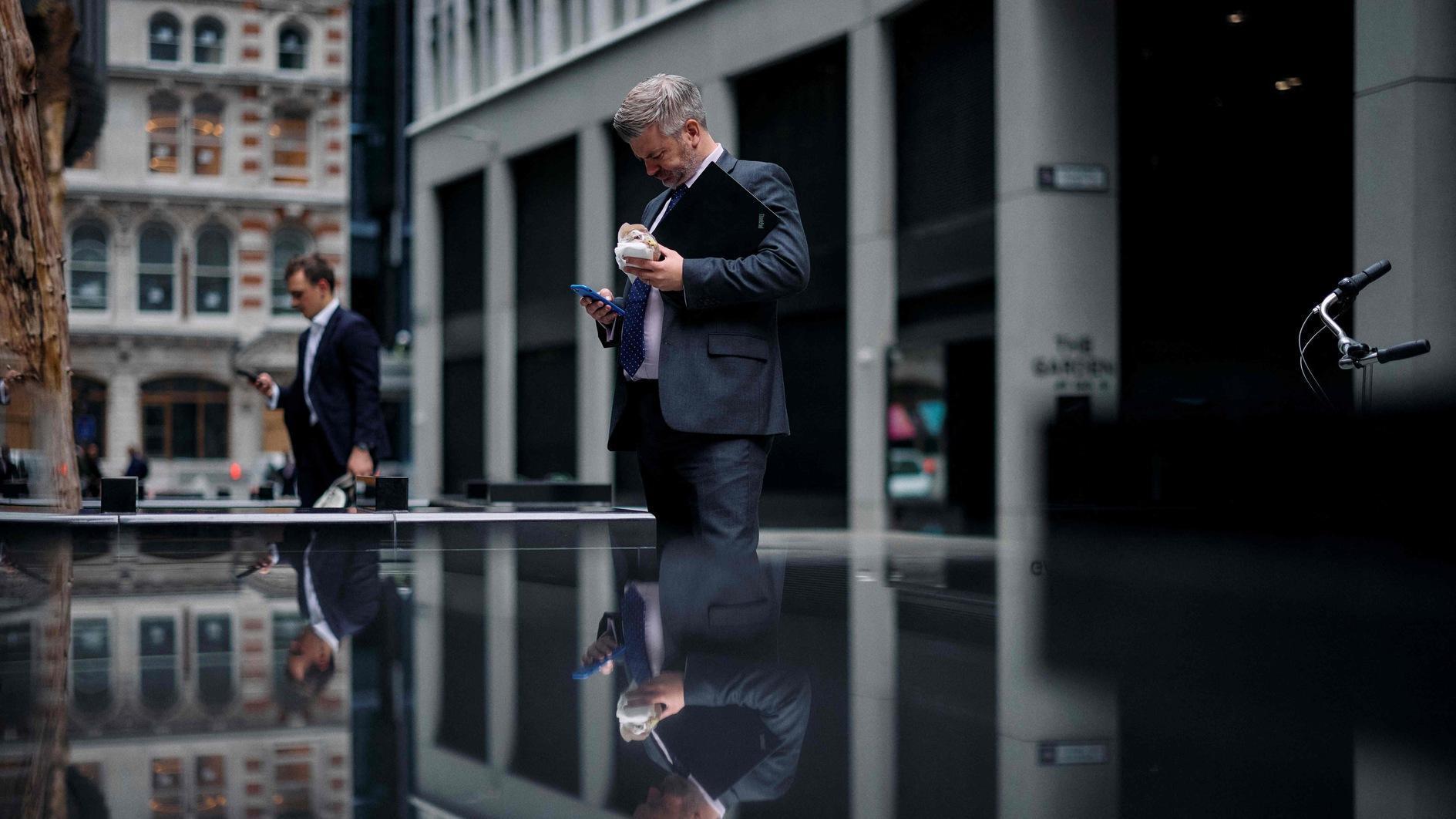
A man looks at his phone as he stands in the street in The City financial district, in central London, on June 12, 2024.
Since calling a general election for July 4, British Prime Minister Rishi Sunak has been at pains to repeat a key message on the campaign trail: The economy is turning a corner. Inflation is down. Things are looking up.
That’s not the reality for millions across the U.K. still feeling the squeeze from high food, energy and housing prices.
The persistent cost-of-living crisis is a top concern for voters in the parliamentary election, when they will choose lawmakers to fill all 650 seats in the House of Commons, and the leader of the party that can command a majority — either alone or in coalition — will become prime minister.
While Sunak's Conservatives are widely expected to lose after 14 years in power, the dire state of the economy means that the prevailing mood ahead of the election is one of malaise, not excitement or hope for change, even if the opposition Labour Party wins.
Although inflation has returned to near-normal levels after skyrocketing in recent years, energy bills and items on store shelves still cost more than they did before the pandemic, when they started their steep climb. And while wages are starting to rise, mortgages and rents have soared along with interest rates, taking large chunks out of many household incomes.
Inflation in the U.K. hit a peak of 11 percent in late 2022, the highest the country had seen in four decades. For most, especially public sector workers, take-home pay failed to keep up with spiraling prices.
The Institute for Fiscal Studies, a leading think tank, said in March that the current parliament has overseen the worst growth in living standards since at least 1961.
It added that from 2019 to 2023, the number of adults who reported being unable to adequately heat their homes more than doubled.
Sunak is keen to point out that the worst appears to be over: Inflation is now down to 2.3 percent, and average wages are also rising after more than a decade of low income growth following the 2008 financial crisis.
But there’s little to be jubilant about. The latest official figures published last week showed that economic growth was flat in April, after rising 0.6 percent during the first quarter of the year.
The IFS and many economists have warned that whoever wins the election will face tough choices to raise taxes or cut public spending because they will need to wrestle with a huge debt burden while trying to take Britain out of economic stagnation.
Britain’s poorest have been disproportionately hit by the cost-of-living crisis because they spend a much larger share of their incomes on essentials.
More people are falling into poverty and more are turning to food banks, according to the Trussell Trust.
The charity said it provided 3 million emergency food parcels to people in need last year — a record number for the trust — including to over 300,000 people who used a food bank for the first time.